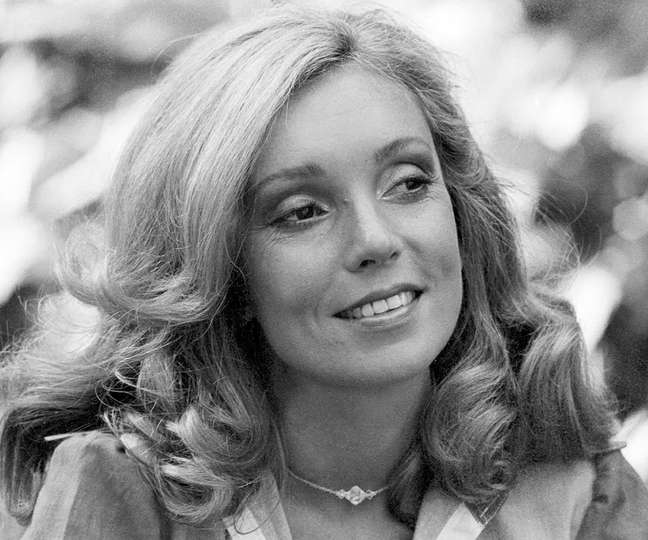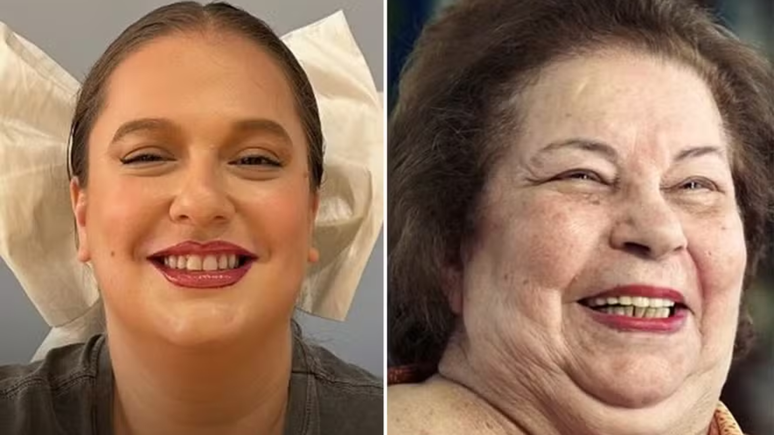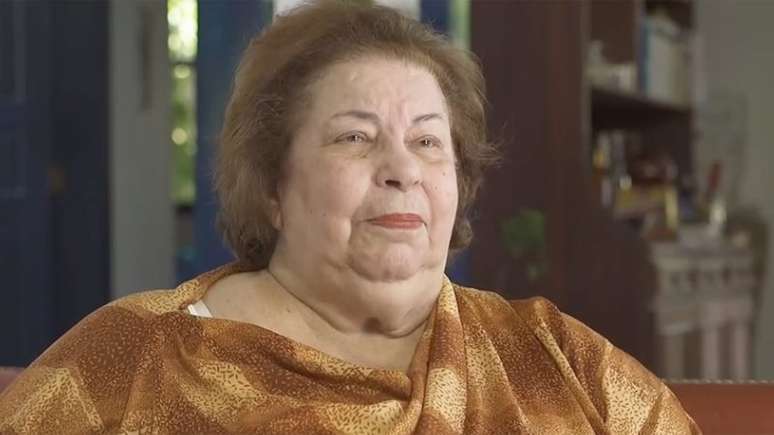
Actress Maria Lúcia Dahl, who marked an era in Brazilian cinema, died this Thursday (16/6) in Rio de Janeiro, of an unknown cause, at the age of 80. She suffered from Alzheimer’s and had been hospitalized at the Artist Retreat since early 2020.
Carioca, daughter of a traditional family, met her first husband when she lived in Italy, the director Gustavo Dahl, with whom she shared a love for cinema. Her education in her best schools led her to want to work with culture, paving the way for her to become one of the greatest muses of national cinema – and of Brazilian counterculture.
He made his screen debut in “Bahia de Todos os Santos”, a 1960 drama directed by José Hipolito Trigueirinho Neto, but only repeated the experience five years later, in Walter Lima Jr’s classic “Menino de Engenho” (1965). Later, however, he modified one film after another, crossing the boundaries between Cinema Novo, Cinema Marginal and commercial cinema.
To stop at the 1960s, the list includes Cacá Diegues’ second feature film, “A Grande Cidade ou As Aventuras and Desventuras de Luzia and Seus 3 Amigos Chegados de Afar” (1966), Daniel Filho’s first film, “Pobre Príncipe Encantado “(1969), and the classics” Cara a Cara “, by Júlio Bressane, and” Macunaíma “(1969), by Joaquim Pedro de Andrade. Without forgetting “O Bravo Guerreiro” (1969), the first and only time directed by her husband, Gustavo Dahl.
Experiencing everything he was entitled to in the era of great madness, he experienced an open marriage, which ended in divorce in the late 1960s when he fell in love with student leader Marcos Medeiros. Together with her second husband, she ended up engaging in the movement against the military dictatorship, she suffered threats and fled the country with the help of her sister, now Globo costume designer, Marilia Carneiro.
She lived in exile in Paris, where she had a daughter Joana, who she raised alone. During this time, her father’s death caused her family to lose her financial stability, which brought her back to Brazil in the mid-1970s, trying to resume her career on television. Beginning to share the big screen with Globo’s screen, he participated in soap operas such as “O Espigão” (1974), “Gabriela” (1975), “Espelho Mágico” (1977) and “Dancin ‘Days” (1978), Gilberto Braga’s first production of otto, with whom he then developed a successful partnership in a new format.
At the same time, it consolidated itself as a sex symbol of the pornochanchadas era, combining productions with very suggestive titles – from “Deixa, Amorzinho … do Sexo” (1977) and “Mulher Objeto” (1981), both directed by Silvio de Abreu (now best known for his soap operas). Over the past decade, TPM magazine has recalled that she is the only woman who can move with equal ease between the private clubs of Rio’s elite and pornochanchada studios.
There were also more traditional films of the time, such as “Um Homem Célebre” (1974), by Miguel Faria Jr., and “Guerra Conjugal” (1975), by Joaquim Pedro de Andrade, in addition to the partnership with Antônio Calmon, started in 1977. with “Toy Revolver”. The two worked together on five consecutive films in the short space of two years, up to “Eu Matei Lúcio Flávio” (1979).
But around the consecration of “Eu Te Amo” (1981), by Arnaldo Jabor, national cinema enters a crisis, leading it to strengthen its presence on TV. He has mainly made light soap operas with humor tones, such as “Ti Ti Ti” (1985), “Cambalacho” (1986), “Bambolê” (1987), “Salsa e Merengue” (1996) and “Aquele Beijo” (2006) ). The exception was his only soap opera of eight, “Torre de Babel” (1998), in a cameo for his old partner Silvio de Abreu.
The actress was also part of the cast of Gilberto Braga’s most famous miniseries: “Anos Dourados” (1986), “O Primo Basílio” (1988) and “Anos Rebeldes” (1992).
From the resumption of Brazilian cinema in the mid-90s, Maria Lúcia resumed her first passion, increasing her filmography with “Veja Esta Canção” (1994), by Cacá Diegues, “Quem Matou Pixote?” (1995), by José Joffily, and others, up to “O Gestor” (2011), by the veteran Paulo César Saraceni.
In the final phase of his career, he still showed new talents, writing the screenplay for “Vendo ou Alugo” (2013), a comedy directed by Betse de Paula, which earned him the award for best screenwriter at the Cine-PE Festival. By the way, he has also written five books and kept a column in the old Jornal do Brasil for 20 years.
Her last screen appearance was in the documentary “Marcos Medeiros Codinome Vampiro” (2018) about her second husband. Marcos Medeiros was arrested, tortured and exiled to Europe, where he began his career as an avant-garde short film (and screenwriter of Glauber Rocha’s classic documentary “História do Brasil”), before dying in 1997, after a long stay at Pinel. .
Maria Lúcia Dahl had her only daughter with her, Joana Medeiros, also an actress. And it is with her that he did one of the most famous Brazilian Playboy nude rehearsals, in 1985. Detail: Joana was only 14 years old.
Source: Terra
Emily Jhon is a product and service reviewer at Gossipify, known for her honest evaluations and thorough analysis. With a background in marketing and consumer research, she offers valuable insights to readers. She has been writing for Gossipify for several years and has a degree in Marketing and Consumer Research from the University of Oxford.








